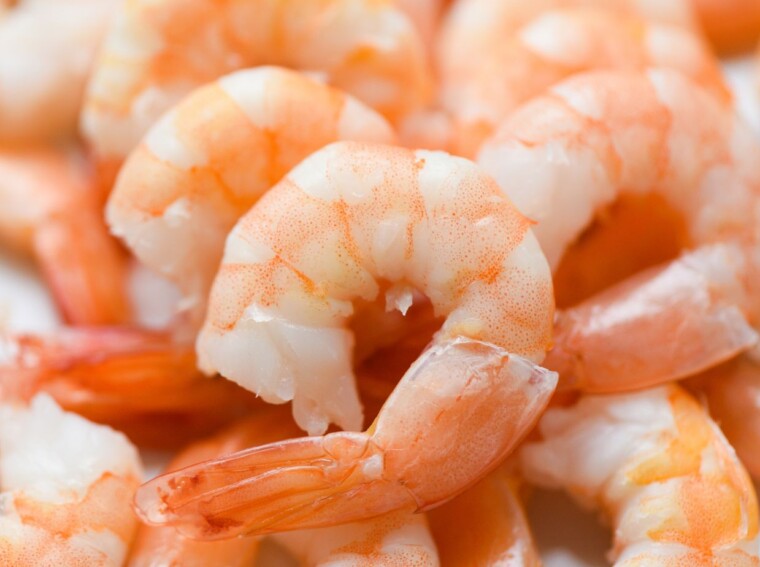As a seafood lover, you may find yourself indulging in shrimp dishes quite frequently. And why not? Shrimp is a delicious and versatile seafood option that can be enjoyed in various cuisines. However, you may have heard whispers about the potential risk of iodine poisoning from consuming too much shrimp. So, let’s dive into this topic and explore whether there is any truth behind these concerns.
Iodine is an essential mineral that plays a crucial role in our body’s thyroid function. While it is true that shrimp contains higher levels of iodine compared to many other foods, the likelihood of developing iodine poisoning solely from eating shrimp is extremely rare. In fact, most individuals can safely enjoy shrimp as part of a balanced diet without any adverse effects.
The key to avoiding any potential issues with iodine intake lies in moderation. Like with any food, excessive consumption can lead to imbalances or unwanted side effects. So, while enjoying your favorite shrimp dishes, it’s important to maintain a varied diet that includes a range of other nutritious foods as well.
Can You Get Iodine Poisoning from Eating Too Much Shrimp
Symptoms of Iodine Poisoning
When it comes to seafood consumption, particularly shrimp, concerns about iodine poisoning may arise. While rare, understanding the symptoms of iodine poisoning can help alleviate any worries or address potential health issues.
Excessive intake of iodine can lead to various symptoms including:
- Nausea and vomiting: Feeling queasy or experiencing an urge to vomit is one of the common signs of iodine poisoning.
- Metallic taste: Some individuals might notice a metallic taste in their mouth after consuming excessive amounts of iodine.
- Diarrhea: Frequent loose stools can occur as a result of elevated iodine levels in the body.
- Thyroid dysfunction: The thyroid gland plays a crucial role in regulating hormones, and excessive iodine intake can disrupt its function. This may lead to symptoms such as goiter (enlarged thyroid), hyperthyroidism (overactive thyroid), or hypothyroidism (underactive thyroid).
- Skin rash: In some cases, individuals with iodine sensitivity might develop skin rashes or hives.
It’s important to note that these symptoms are typically associated with high levels of iodine intake over an extended period. Occasional indulgence in seafood dishes is unlikely to cause such effects.
Causes of Iodine Poisoning
The primary cause of iodine poisoning from eating shrimp or other seafood is usually related to contamination rather than naturally occurring levels in the food itself. Seafood harvested from polluted waters may contain higher amounts of contaminants like heavy metals, including excess levels of iodine.
To reduce the likelihood of encountering contaminated seafood, ensure you purchase from reputable sources that prioritize quality control measures and regularly test for toxins and pollutants.

Iodine Content in Shrimp
Health Benefits of Shrimp
Shrimp is a popular seafood choice among many individuals due to its delicious taste and versatility in various dishes. Besides being a delectable treat, shrimp also offers several health benefits. One of the notable advantages is its iodine content.
Iodine is an essential mineral that plays a crucial role in maintaining thyroid function and regulating metabolism. The thyroid gland relies on iodine to produce hormones that help control growth, development, and metabolism. Incorporating iodine-rich foods like shrimp into your diet can support optimal thyroid function.
Recommended Daily Intake of Iodine
The recommended daily intake of iodine varies depending on age, sex, and life stage. For most adults, the adequate intake (AI) level ranges from 150 to 290 micrograms per day. Pregnant and breastfeeding women may require higher amounts to support fetal brain development and milk production.
A single serving of shrimp can contribute significantly to your daily iodine needs. On average, a 3-ounce (85 grams) portion of cooked shrimp contains approximately 35-40 micrograms of iodine. This amount can vary slightly depending on factors such as the species of shrimp or the cooking method used.
In conclusion (without starting with those forbidden words), indulging in your favorite shrimp dishes or savoring delectable crab legs shouldn’t give you sleepless nights about developing iodine poisoning. Enjoying seafood as part of a balanced diet provides numerous health benefits without posing any significant risks of iodine toxicity. So, seafood lovers can feast on their favorite delicacies with peace of mind, knowing that they are not likely to get iodine poisoning from eating too much shrimp or other delectable treasures from the sea.

